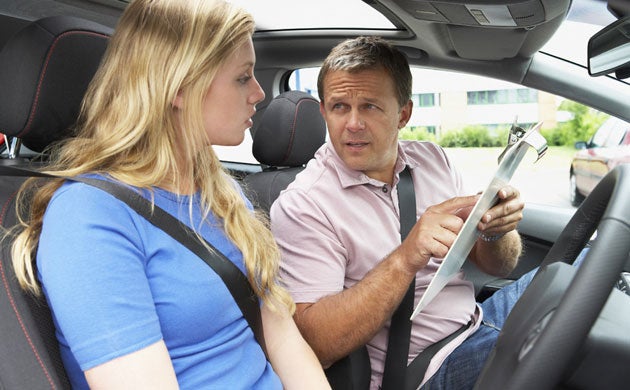Half of Britain's motorists would fail a driving test retake

Your support helps us to tell the story
From reproductive rights to climate change to Big Tech, The Independent is on the ground when the story is developing. Whether it's investigating the financials of Elon Musk's pro-Trump PAC or producing our latest documentary, 'The A Word', which shines a light on the American women fighting for reproductive rights, we know how important it is to parse out the facts from the messaging.
At such a critical moment in US history, we need reporters on the ground. Your donation allows us to keep sending journalists to speak to both sides of the story.
The Independent is trusted by Americans across the entire political spectrum. And unlike many other quality news outlets, we choose not to lock Americans out of our reporting and analysis with paywalls. We believe quality journalism should be available to everyone, paid for by those who can afford it.
Your support makes all the difference.At first sight it looks like another of those summer silly season surveys confirming the bleedin' obvious that companies feel compelled to publish in order to grab some attention when there's no real news about - but this one deserves to be taken seriously.
An experiment organised by Kia Motors UK - the Kia Motors Driving Test Challenge - found that 50 per cent of the UK's experienced drivers would probably fail the British driving test if they were required to retake it. That's scarcely better than the 42 per cent pass rate for new drivers in the actual test.
The tests were undertaken by an approved driving instructor, Damien Burke, who assessed candidates over a standard forty minute test route according to the official Driving Standards Agency score sheet. Even worse than the headline failure rate was the proportion of experienced drivers who committed a so-called "major", a more serious motoring mistake that would lead to automatic disqualification in the real test; about half of those who failed notched up one of those. The commonest problems involved poor observation. For example, drivers often failed to use their mirrors properly or look over their shoulders to check blind spots when performing manoeuvres such as pulling away from the kerb.
Other common infractions included hesitation at junctions, speeding, following the car in front too closely and failing to signal where appropriate. Male and female drivers lived up to their gender stereotypes; men were often over-confident and used excessive speed, while women generally drove more intelligently but tended to be marked down for hesitation. Burke also noticed that experienced drivers tended to get into bad habits that wouldn't necessarily formally count against a candidate on the test but are nevertheless frowned upon, including poor anticipation, approaching junctions too quickly and coasting.
A final sobering thought; if that's how some of these drivers conduct themselves under the watchful eye of an instructor while trying to pass a test - albeit a simulated one - how on earth do they drive when they're not under that sort of scrutiny? Nobody was reported to have failed for using a hand-held mobile phone at the wheel during the test, for example, although that's a common enough sight on British roads.
Join our commenting forum
Join thought-provoking conversations, follow other Independent readers and see their replies
Comments